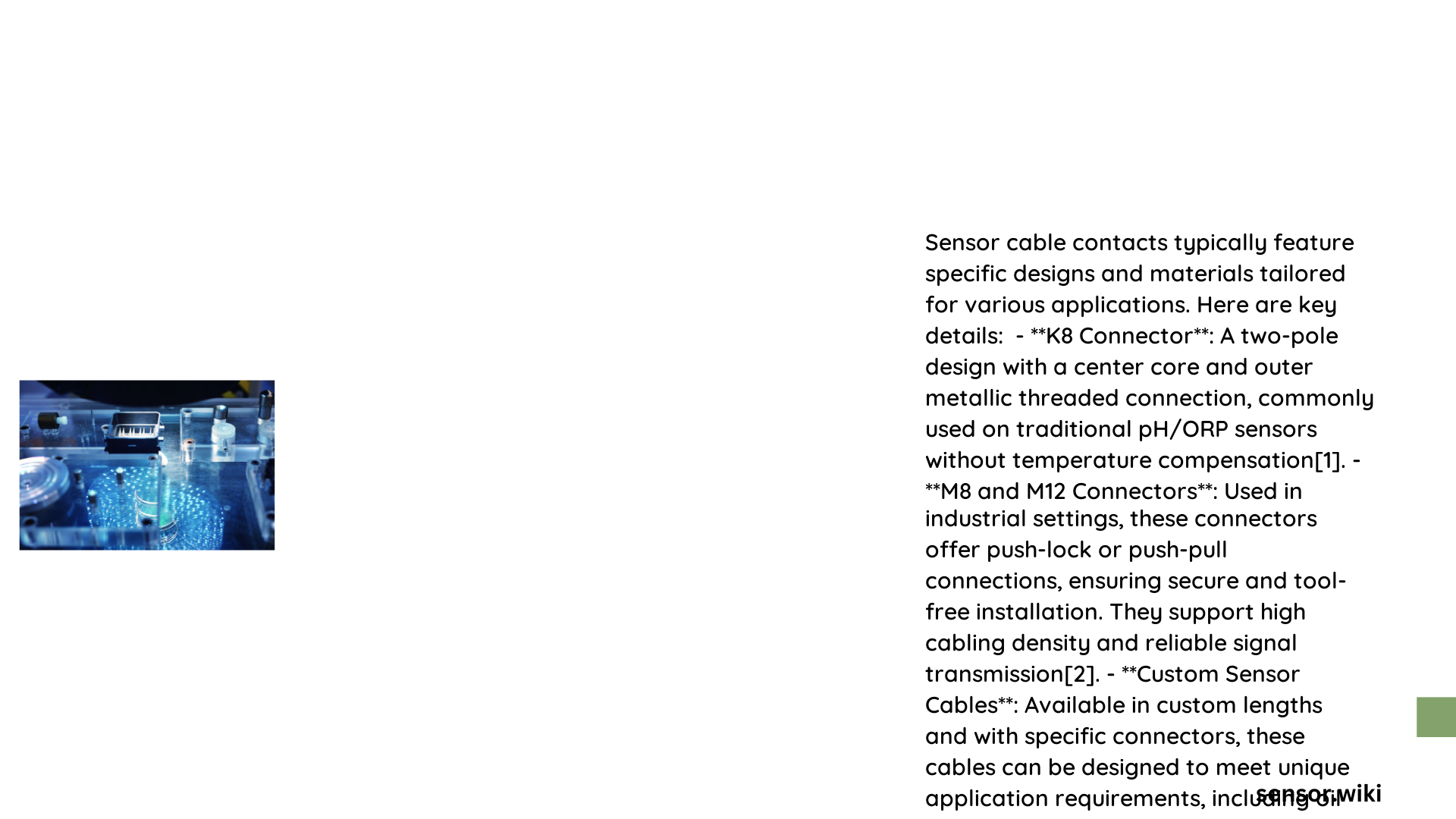Sensor cable contacts are critical electrical interface components that enable precise signal transmission and power delivery in industrial automation, process control, and sensing applications. These specialized contacts facilitate reliable electrical connections between sensors, actuators, and control systems, ensuring robust performance across diverse environmental conditions and technological requirements.
What Are Sensor Cable Contacts?
Sensor cable contacts represent specialized electrical connection points designed to establish secure, low-resistance electrical interfaces between sensor cables and electronic systems. These contacts play a pivotal role in maintaining signal integrity, power transmission, and mechanical stability across various industrial and technological environments.
What Types of Sensor Cable Contacts Exist?
Crimp Contacts
- Characteristics:
- Mechanically compressed wire connection
- High reliability and field repairability
-
Quick installation process
-
Typical Applications:
- Industrial automation systems
- Process control equipment
- Robotics and manufacturing environments
Solder Contacts
- Key Features:
- Permanent electrical connection
- Enhanced moisture resistance
-
High precision connection method
-
Preferred Use Cases:
- Printed circuit board interfaces
- High-reliability electronic systems
- Precision measurement equipment
Screw Terminal Contacts
- Design Attributes:
- Maintenance-free connection
- Easy assembly and disassembly
-
Compatible with multiple connector standards
-
Recommended Applications:
- M5, M8, and M12 connector systems
- Industrial control panels
- Modular electrical systems
How Do Material Selections Impact Sensor Cable Contacts?

Copper Contacts
- Electrical Conductivity: Excellent
- Cost-Effectiveness: High
- Primary Applications: General-purpose electrical connections
Gold-Plated Contacts
- Corrosion Resistance: Superior
- Contact Reliability: Exceptional
- Specialized Use: High-precision measurement systems
Stainless Steel Contacts
- Mechanical Strength: Outstanding
- Environmental Durability: Excellent
- Recommended Environments: Harsh industrial settings
What Performance Factors Determine Contact Quality?
| Performance Parameter | Typical Range | Significance |
|---|---|---|
| Voltage Rating | 250V AC/DC | Safety Compliance |
| Current Capacity | 5-12A | Power Transmission |
| Temperature Tolerance | -40°C to +85°C | Operational Reliability |
| Insertion Cycles | 100-500 cycles | Mechanical Durability |
How to Select Appropriate Sensor Cable Contacts?
Evaluation Criteria
- Environmental operating conditions
- Electrical performance requirements
- Mechanical installation constraints
- Industry-specific standards compliance
Recommended Selection Process
- Analyze specific application requirements
- Review manufacturer technical specifications
- Validate compatibility with existing systems
- Consider long-term reliability and maintenance needs
Best Practices for Sensor Cable Contact Management
- Regular visual inspection
- Periodic electrical continuity testing
- Proper cleaning and maintenance
- Adherence to manufacturer installation guidelines
Emerging Trends in Sensor Cable Contacts
- Miniaturization of contact interfaces
- Enhanced material technologies
- Improved environmental resistance
- Integration of smart diagnostic capabilities
References:
– IEC 61076-2-101 Connector Standard
– Industrial Connector Specifications
– Sensor Connectivity Guidelines
